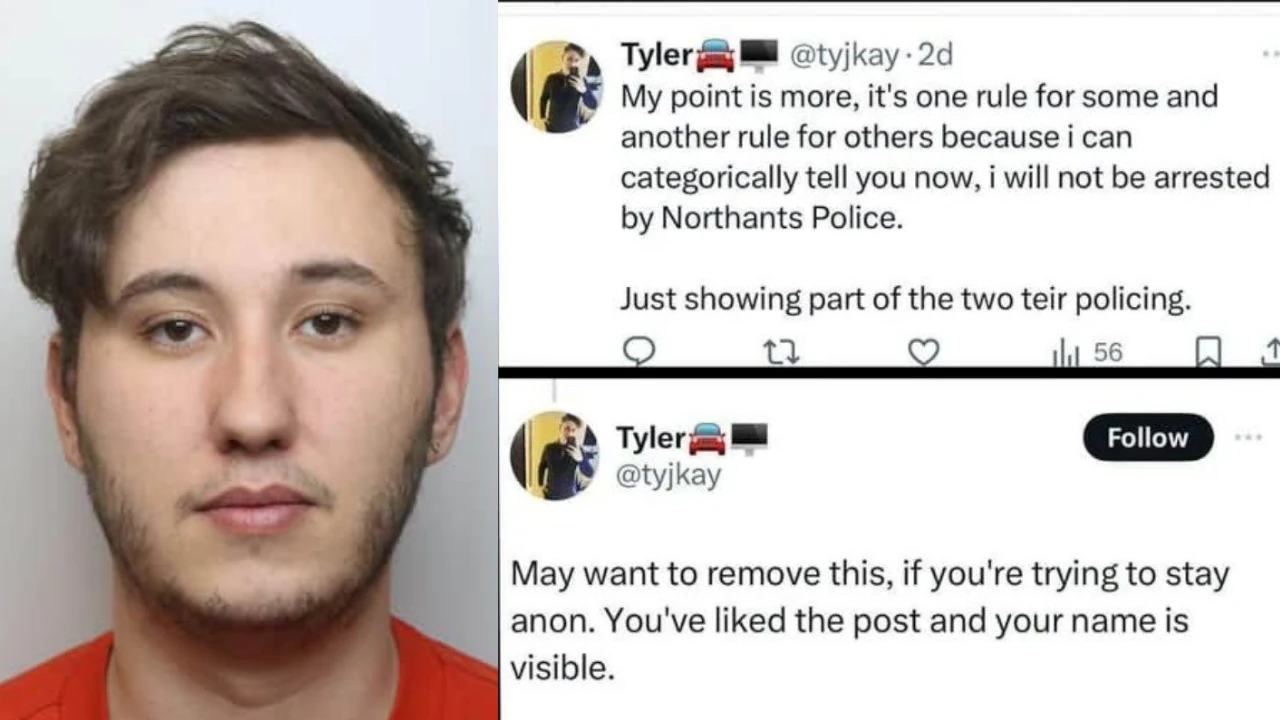
Tyler Kay, 26, and a father of three, didn’t take to the streets to protest or riot. He was sentenced to 38 months in prison for copying a post from Lucy Connolly, the wife of a Conservative councillor.
The post he copied called for burning down hotels housing migrants, and he later added to it suggesting to “mask up” while doing it. Tyler claims he wasn’t inciting violence but was instead trying to prove a point that he wouldn’t be arrested. He even clarified in a reply to his posts: “My point is more, it’s one rule for some and another rule for others” and “I can categorically tell you now, I will not be arrested by Northants Police.”
Nonetheless, his actions were illegal. This isn’t a new law—it’s been in place for a long time. You cannot post calls for violence online, which, on the surface, seems reasonable.
Where it becomes skewed is in the way such actions are interpreted. You can be taken out of context and prosecuted even if no one acts on it and no violence occurs. If your perceived intent is labeled as “racism,” this becomes an aggravating factor and can lead to harsher sentencing.
Often, online crimes receive longer sentences than physical ones. While we want to be clear that we are not defending his or anyone else’s actions, in our view, it’s unjust for Tyler—a father of three who made a serious mistake—to face imprisonment for what could easily be construed as terrible judgment, especially when violent & child sex offenders are allowed to walk free. It’s even more unjust to extend someone’s sentence based on perceived intent rather than actual physical harm caused.
It is disproportionate for online speech alone to be punished more serverly than actions.
We are in an environment where orders are being passed down to prosecute for any infraction, regardless of context, and these processes are being fast-tracked. That’s the #TwoTierPolicing element.
However, we must be careful when sharing these stories. It’s crucial to provide proper context so as not to scare people away from participating in legitimate political discourse. Too many are sharing these cases in a way that implies anti-immigration opinions are being outlawed.
The rule of thumb is simple:
- Never call for violence, even in jest.
- Never target people based on race, religion or any other characteristic, even in jest.
Stick to that, and no harm should come your way.
[At the time of writing Lucy Connolly had not stood trial]
Sources:


